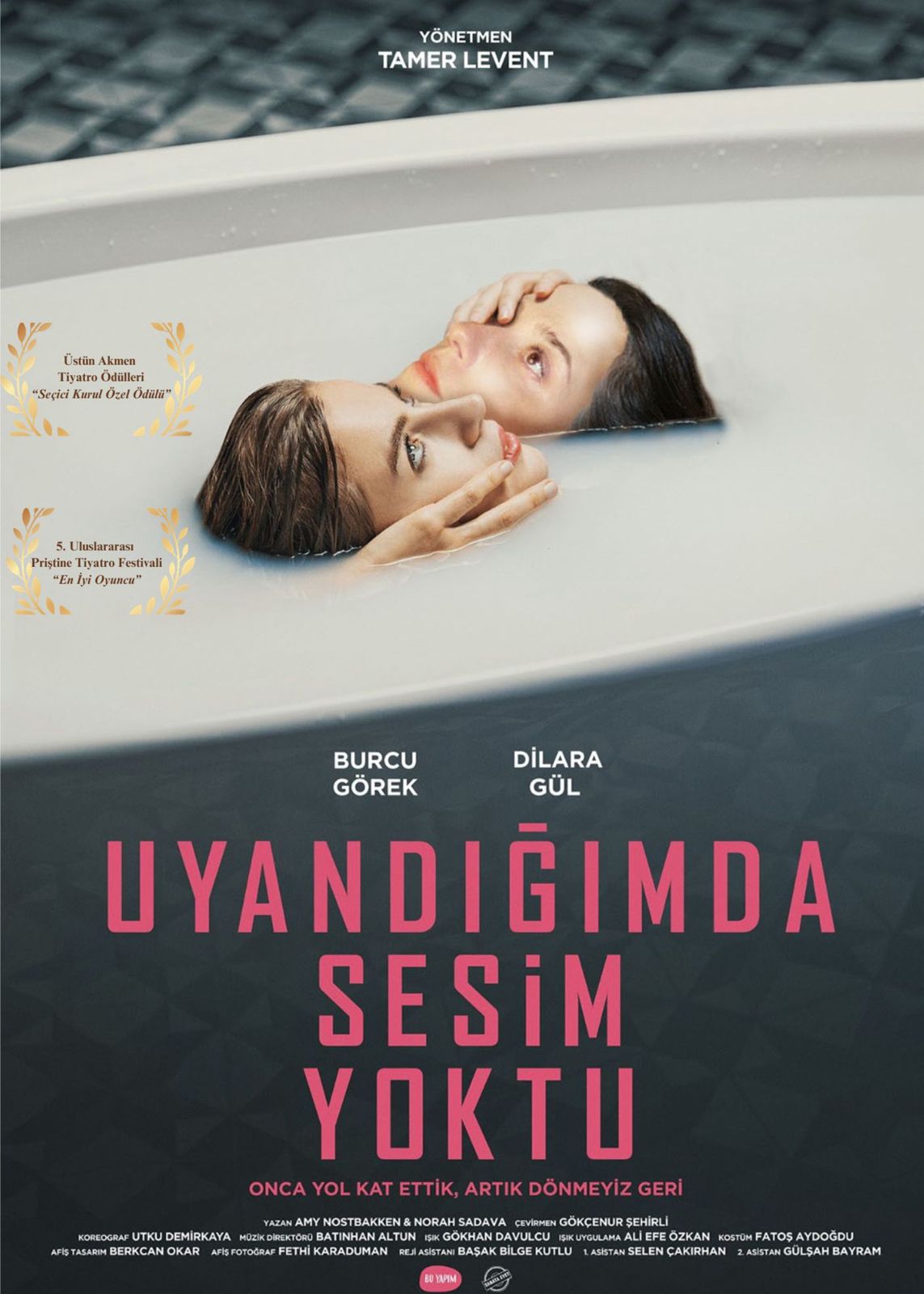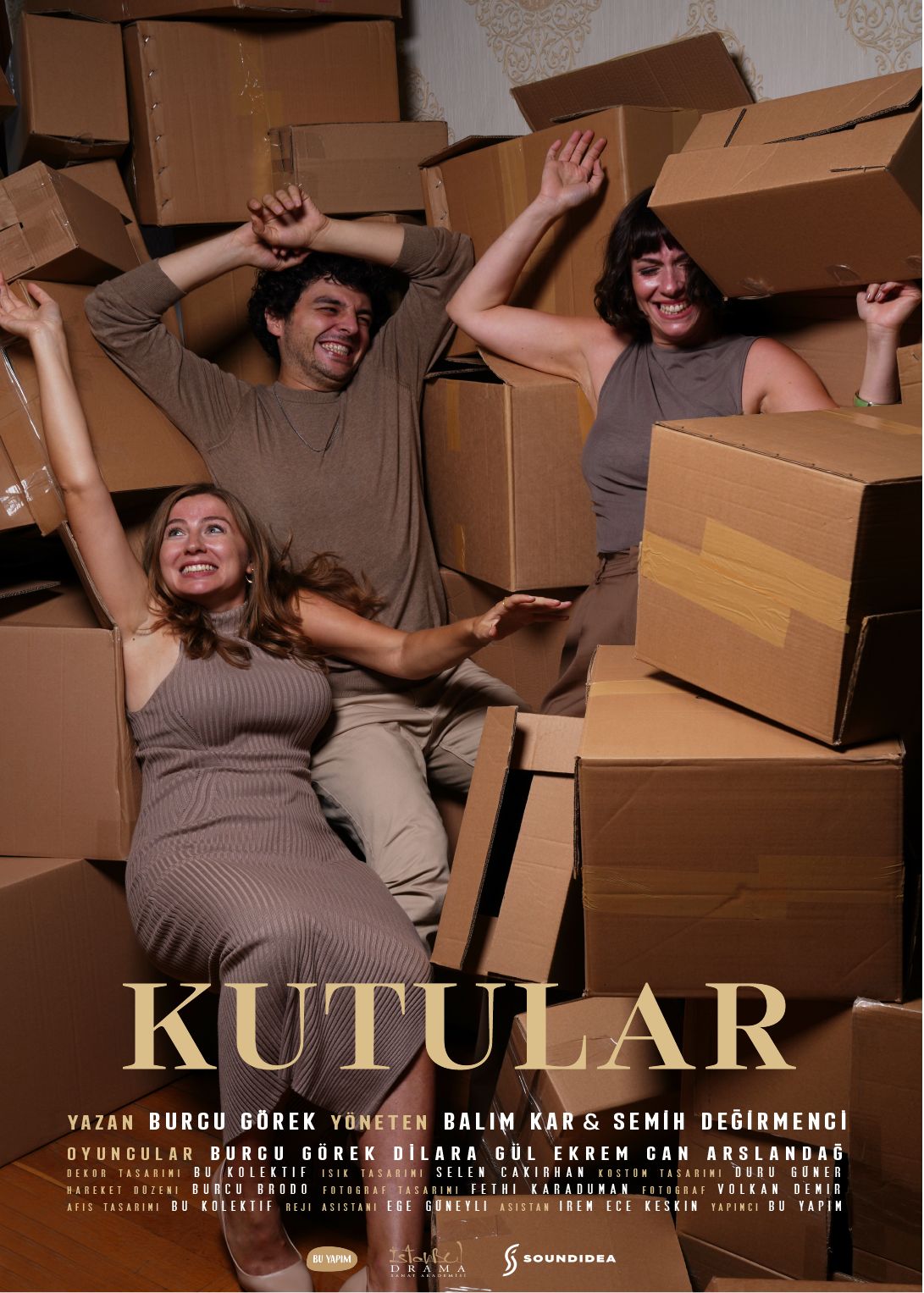The play “Uyandığımda Sesim Yoktu”, one of the world’s most indoor games and watching the attack, meets its audience in Turkey with the director of Tamer Levent.
In 2013, we set out to collaborate on a theatre piece about female relationships. inspired by the writing of Anne Sexton, Sharon Olds, Amy Gerstler, and Sylvia Plath, we wanted to create a work that would investigate the particular nature of the way women relate to one another. We hoped to explore the special closeness that we share: the intimacy of bathing together, crying together, nursing each other, all the while sensing this dark sister of competition and menace living right beside that love. We distilled three years of intense conversation into sixty minutes of theatre with some added narrative devices for the purposes of story- telling. This play is a naked, vulnerable, raw set of truths that we have been terrified to expose, and that we have been completely liberated by.
There’s hardly a facet of a modern woman’s life left unremarked upon in this deft and searching work. Amy Nostbakken and Norah Sadava have found a wonderfully apt form to express the dilemma of contemporary feminism, without once dipping into academic jargon or movement rhetoric.
The whole of our predicament is expressed in the constricted throats of these two women, tightened with grief, fury, and frustration. The audi- ence carries the unanswered questions with them as they leave with the last line in their ears: ‘Huh, huh, huh, we’ve come so far now and we’ll never go back to …’
A Summary
Uyandığımda Sesim Yoktu (Mouthpiece) is a play written for the rights of women who overtly or covertly suffered oppression, women who are unable to express themselves because of various fears and limitations imposed on them by the society, silenced, battered, even killed in cold blood. It’s story of a woman writer who questions violence against women and the place of women in society in the context of how similar her life is to her recently deceased mother’s.
Cassandra, who wakes up to the news of her mother’s demise, comes to realize the huge similarities between their lives while trying to come up with a eulogy she has to deliver. Her acceptance and denial of this fact leads us to see two conflicting sides of her personified. Her two sides manifested in two separate bodies mostly argue but come to terms a few times.
Cassandra, with her rebellious attitude and defiance, wants to prove to us that a society where women can find their voices and express themselves is possible.
Uyandığımda Sesim Yoktu (Mouthpiece) aims to show that there can be turning back for the women who have toiled so hard to reconnect with their strength, stand firm and express themselves.
“What do you believe we are most in need of?
“To be understood..”
“Is that the reason we don’t stop talking?”
“Silence, in my opinion, is the wisest course of action.”
Closed boxes surround our rooms, homes, and hearts. These are the boxes we are required to carry, and we carry them wherever we go. When getting to know someone, do we have the courage to open these boxes?
The play’s central motif is boxes, symbolizing relationships. Of course, people are the subjects of these connections. The audience is taken on a journey by the performance with boxes, uncovering the secrets we are afraid to tell anybody. Perhaps the moment we look up from our phones to gaze at our loved ones is as close as we get to disclosing the secrets of our lives. It’s possible that there isn’t a difference between us and others who say, “We can never be together; we are people of different worlds,” and that a mere coincidence can reveal this.
The most sensitive secrets, the most thrilling feelings, and the most personal confessions are shared during the course of Eylül, Ali, and Nice’s nightlong sharing. How will the night continue for Eylül, who no longer wants to be alone; Ali, who fears being alone again; and Nice, who questions the choices made to overcome loneliness?

